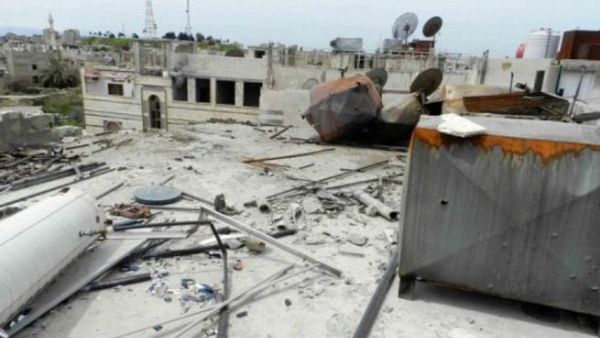The district of Khaldiye in Homs on Sunday was shelled by the Syrian army "with an average of three rounds per minute" according to an NGO, in the most violent bombardment since the commencement of the truce on April 12. Heavy fighting also broke out at dawn in the province of Aleppo (north) between soldiers and military dissidents, said the Syrian Observatory of Human Rights (SOHR).
The cease-fire has been fragile since its start as violence left at least 32 dead. However, this toll remains far below dozens of civilians who were killed every day in recent months before the truce.
Amid the continuing hostilities, a mission of 30 unarmed military observers mandated by UN Resolution 2042 is expected to arrive in Damascus. "The renewed violence is once again raising seriously doubts over the willingness of the regime of President Bashar al-Assad to respect the cease-fire," said the U.S. ambassador to the UN, Ms. Susan Rice. "The violence has decreased but the attacks on civilians in Homs confirm the doubts that you may have about the seriousness of the commitment of the regime, "according to her French colleague, Gerard Araud. In fact, the Syrian Army still has not removed its tanks from the cities as conditioned by the truce plan of UN and Arab League envoy Kofi Annan. "Since the beginning of the implementation of the plan, there has been no change in the security and military deployment and tanks are still there, "said the president of the SHOR, Rami Abdel Rahman.
Under the resolution adopted Saturday by the 15 UN Security Council members, the Syrian government is primarily responsible for the safety of observers, including five or six who flew immediately after the vote. The others will join in the coming days.
According to diplomats, the observers could come from UN staff deployed in the Golan or Southern Sudan. In total, the mission should have 250 members. The first task of the preparatory mission is "to establish an operational headquarters" in Damascus, said Kieran Dwyer, a spokesman for the UN peacekeeping operations department. Observers will then contact with government forces and those of the opposition "so that both sides understand what is their task."







